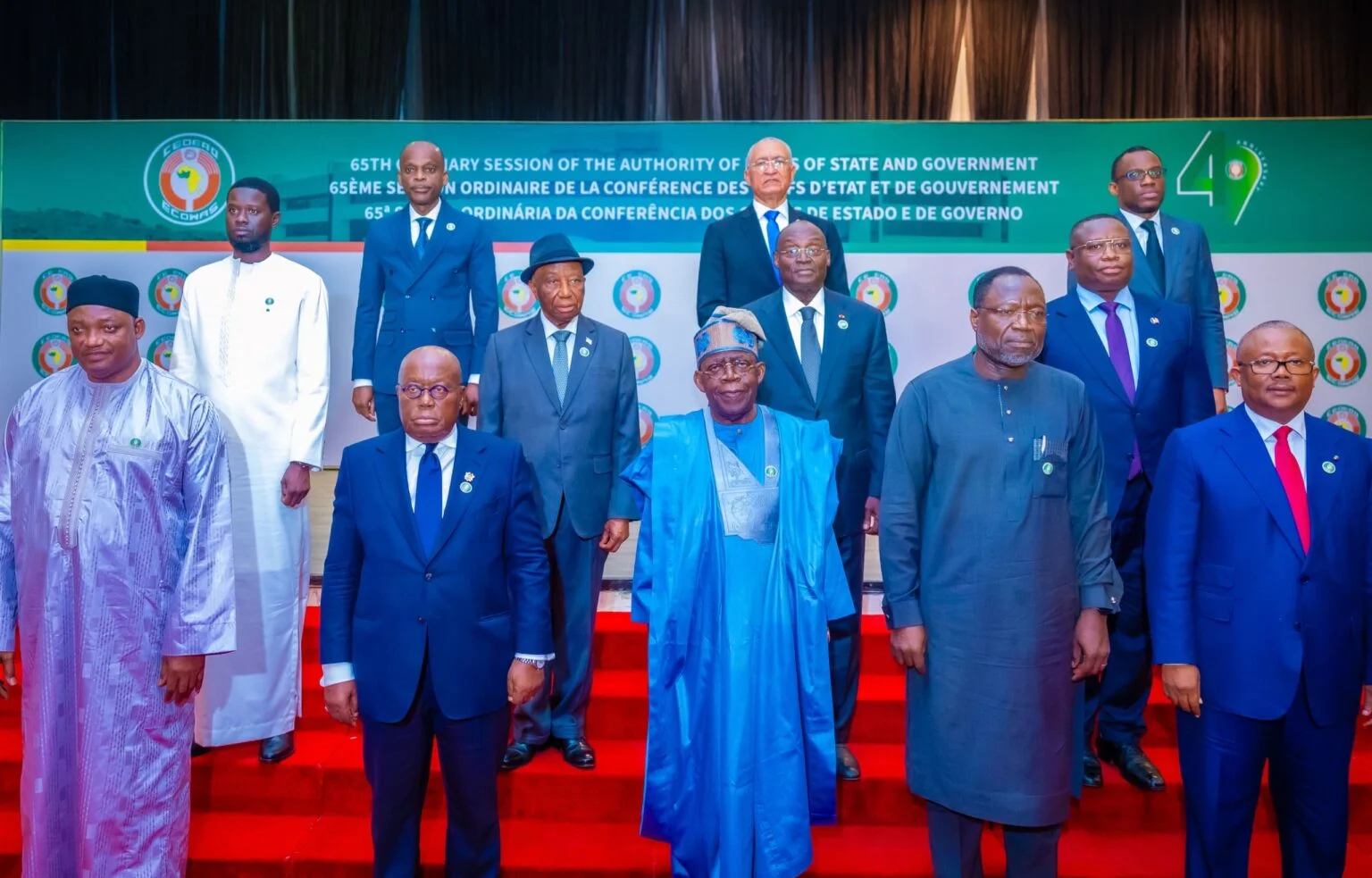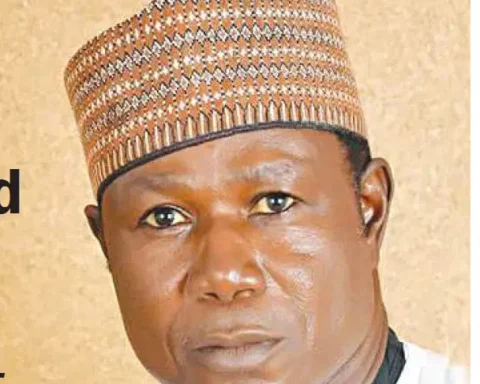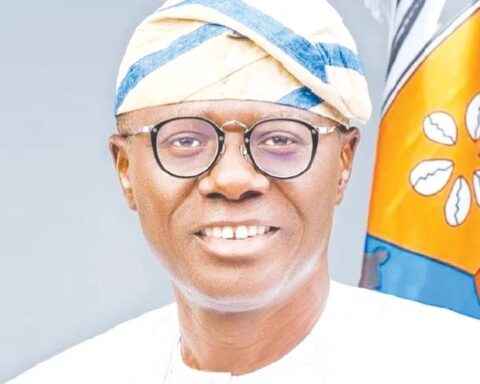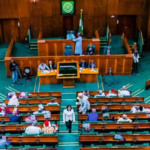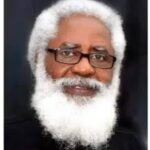-
Tinubu calls for unity in the region
In a landmark decision, the Economic Community of West African States (ECOWAS) has officially acknowledged the withdrawal of Mali, Niger, and Burkina Faso from the regional bloc.
The announcement was made in a communique issued at the end of the 66th Ordinary Session of the Economic Community of West African States (ECOWAS) held in Abuja yesterday (Sunday, December 15).
According to the communique read by President of the ECOWAS Commission, Omar Touray, the three countries have until January 29, 2025 to pull out or make a u-turn and withdraw their withdrawal applications.
The three nations, governed by military regimes, had expressed dissatisfaction with ECOWAS’s handling of their political situations and its perceived failure to support their fight against terrorism.
Relations between ECOWAS and these nations have been fraught since the military took over the government in Mali (2020), Burkina Faso (2022), and Niger (2023). The bloc had suspended their memberships and called for a return to democratic rule, leading to escalating tensions.
In a joint statement, they described their exit as an “irreversible” decision influenced by what they termed the bloc’s drift from its founding principles. The leaders accused ECOWAS of becoming a tool for foreign powers and failing to address the security challenges they face.
Touray said according to Article 91 of the revised ECOWAS treaty, the withdrawal will take effect on January 29, 2025. During this transitional period until July 29, 2025, ECOWAS will keep its doors open for potential re-engagement with the three countries.
The ECOWAS community commended the diplomatic efforts of Senegal’s President Bassirou Diomaye Faye and Togo’s President Faure Gnassingbé in efforts to mediate the situation.
Touray said, the authority has mandated that formal withdrawal procedures commence after the deadline and instructed the Council of Ministers to convene an extraordinary session in mid-2025 to discuss separation modalities and contingency plans for future relations with Mali, Niger, and Burkina Faso.
He said: “The part of the communique I’ll be reading relates to the decision of the Republic of Mali, the Republic of Niger and Burkina Faso, to withdraw from ECOWAS.
“After deliberations, their excellencies, the authority members of the authority of ECOWAS, heads of state and government, commend the exemplary diplomatic engagement of His Excellency. Bassirou Diomaye Faye, President of the Republic of Senegal, and His Excellency Faure Gnassingbé President of the Togolese Republic, and the diplomatic efforts of the chairman of authority, His Excellency Bola Ahmed Tinubu and other individual member states towards these three countries.
“The authority takes note of the notification by Bukina Faso, Republic of Mali and the Republic of Niger of their decision to withdraw from ECOWAS. The authority acknowledges that in accordance with the provisions of Article 91 of the revised ECOWAS treaty, the three countries will officially cease to be members of ECOWAS from 29 January, 2025.
“The authority decided to set the period from 29 January, 2025 to 29 July 2025 as a transitional period and to keep ECOWAS doors open to the three countries during the transition period.
“In this regard, the authority extends the mandate of President for Gnassingbé of Togo, and President Faye of Senegal to continue their mediation rule up to the end of the transition period to bring the three member countries back to ECOWAS.
“Without prejudice, for the spirit of the opening, The Authority directs the President of the Commission to launch withdrawal formalities after the deadline of 29th January, 2025 and to draw up a contingency plan covering various areas.
“The Authority directs the Council of Ministers to convene an extraordinary session during the second quarter of 2025 to consider and adopt both separation modalities and the contingency plan covering political and economic relations between ECOWAS and the Republic of Niger, the Republic of Mali and Burkina Faso.”
This unprecedented move marks a significant shift in West African politics and raises concerns about regional stability.
Meanwhile, President Bola has called for unity and determination among ECOWAS member states in the implementation of the decisions reached.
Addressing fellow leaders in his closing remarks, Tinubu praised the “spirited discussions” that took place during the summit, highlighting the collective resolve to tackle pressing regional challenges.
“As we move forward to implement the outcomes of this summit, let us remain united in our determination and steadfast in our commitment to the principles that bind us together as a community,” he stated.
The Nigerian leader urged all member states to intensify their efforts to ensure that decisions made translate into tangible benefits for their citizens.
Reflecting on the summit’s achievements, he expressed optimism about the future, stating, “Let us carry with us the optimism and belief that will guide our deliberations and our people.”
He reiterated the importance of championing peace, security, and prosperity in West Africa, emphasizing a vision anchored on freedom, justice, and democracy.
While acknowledging the contributions of outgoing ECOWAS leaders, including Moussa Faki of African Union Commission and Nana Akufo-Addo of Ghana, Tinubu expressed gratitude for their wisdom and guidance. “We will always want to draw from the fountain of your wisdom,” he told Addo, urging not to be too far away from the community.
In closing, President Tinubu thanked all participants for a successful summit and reaffirmed his commitment to fostering cooperation among member states to address regional issues effectively.
Follow us on all social media platforms @dailyquery for more stories around the globe.
